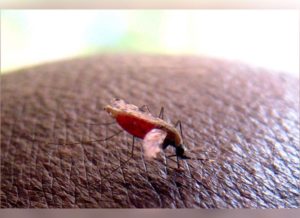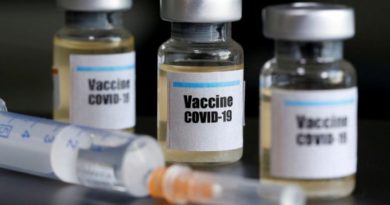OPINION: LETTERS- Why we must eliminate malaria in Myanmar

Malaria is said to be as old as mankind. Worldwide it has killed more people than any other disease in history. Here in Myanmar, more than 8 million people remain at high risk, and we recorded over 70,000 cases in 2018. Yet, we firmly believe that we can, and indeed must eliminate malaria from Myanmar.
Malaria is a life-threatening disease caused by parasites that are transmitted to people through the bites of infected female Anopheles mosquitoes, according to the World Health Organisation. However, it is preventable and curable.
.
ADS by Cloud 9:
.
– SPACE RESERVE FOR YOUR ADVERTISEMENT –

In the last seven years, we have witnessed extraordinary progress in the fight against malaria in the country. Cases have dropped by 85 percent and deaths by a stunning 95pc. With this current trajectory, we can end local transmission in Myanmar by 2030.
There are many reasons for the recent success. The government has made malaria elimination a political priority, not only for the Ministry of Health and Sports, but for all ministries. Public health facilities and village volunteers provide free tests, treatment and care across the country. And development partners have contributed significant funding and technical expertise. This has complemented large increases in domestic resources dedicated to tackle the disease.
.
ADS by Cloud 9:
.
– SPACE RESERVE FOR YOUR ADVERTISEMENT –

We should celebrate progress. But we must also be mindful that the fight is not yet over. As we move closer to elimination, malaria will recede into the most remote of areas and make it harder to find the last cases. This challenge is compounded by antimalarial drug resistance in the countries surrounding the Mekong River. If drug resistance were to deepen and spread, we may have a public health disaster on our hands. We must stop drug resistance in its tracks, and the only way to do so with certainty is to eliminate the disease.
Elimination will require more of what has proven successful, as well as innovation. We must increase and sustain funding, ensure that all have access to quality health care, and expand the collaboration with communities affected by malaria. We must also deepen our partnership with the corporate sector.
In 2018, the Asia Pacific Leaders Malaria Alliance and Yoma Strategic Holdings launched M2030 in Myanmar, bringing together businesses, consumers and health organisations to help end malaria. Today, local companies are also raising funds for malaria programs in Myanmar, reminding consumers that they can help end this disease.
.
ADS by Cloud 9:
.
– SPACE RESERVE FOR YOUR ADVERTISEMENT –

Another partner in the fight against malaria is the Global Fund to Fight AIDS, Tuberculosis and Malaria. The RAI2E program, funded by the Global Fund to eliminate malaria in the Mekong region, has yielded extraordinary results. Since 2014, over US$350 million has been committed to finance malaria programs, foster regional collaboration and drive innovations. This has led to a decline in malaria cases of nearly 50pc in the region in the matter of years. The success of RAI2E shows what can be achieved through smart investments and partnerships.
.
ADS by Cloud 9:
.
– SPACE RESERVE FOR YOUR ADVERTISEMENT –

On October 10, world leaders come together at the Global Fund’s 6th Replenishment Conference in Lyon, France. The Global Fund needs at least $14 billion for the years 2020 to 2022. If the replenishment is successful, the world can get on track in the quest to end HIV, tuberculosis and malaria as severe public health threats. If the replenishment falls short, communities in Myanmar and around the world will continue to bear the burden of these preventable diseases.
In Myanmar, we should be proud of what we have achieved so far. But we are not done yet. In committing to malaria elimination by 2030, we take ownership of our future and demonstrate the best of human ambition and ingenuity.
Melvyn Pun is an M2030 Champions Council Member and CEO Yoma Strategic Holdings and Roslyn Morauta is Board Vice-Chair of the Global Fund to Fight AIDS, Tuberculosis and Malaria.
.
ADS by Cloud 9:
.
– SPACE RESERVE FOR YOUR ADVERTISEMENT –

ADS by Cloud 9:
.
– SPACE RESERVE FOR YOUR ADVERTISEMENT –

ADS by Cloud 9:
.
– SPACE RESERVE FOR YOUR ADVERTISEMENT –






















